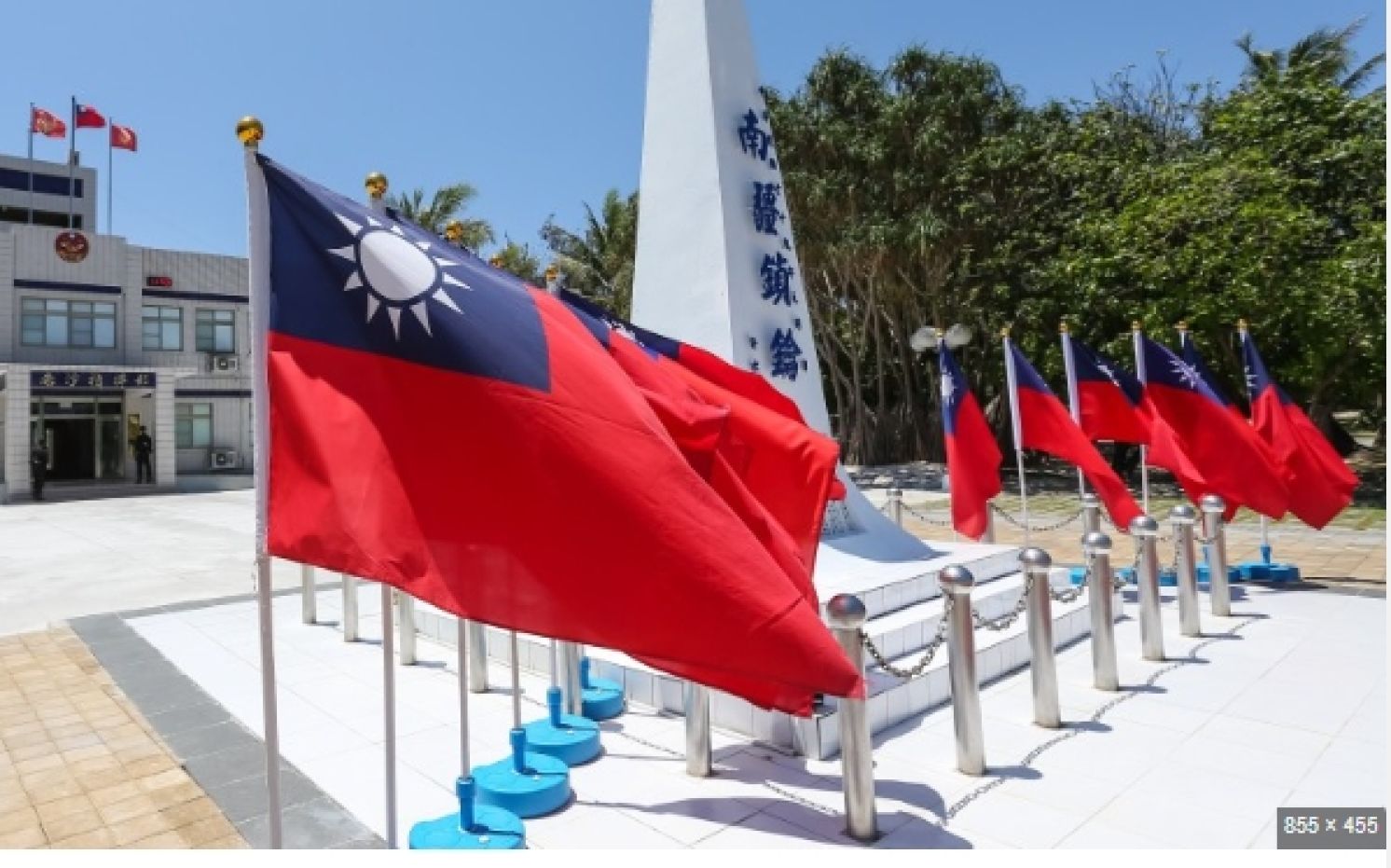
Lai Should Take Pragmatic Approach On South China Sea
By Hu Jui-chou
United Daily News, May 18, 2024
What should President Tsai Ing-wen do before she steps down? Visiting Taiping Island (also known as Itu Aba) and pardoning Chen Shui-bian were the most debated topics. As the chances of a pardon decreased, there was still a possibility of Tsai giving Taiwan her "final mysterious gift.” It is beyond doubt, however, that she will not visit the island. Moreover, the lawmakers of the Democratic Progressive Party (DPP) mocked those planning to visit the island as "clinging to China's thigh and creating trouble,” making it impossible for Tsai to suddenly "cooperate with China's performance" at the last minute.
Less than two months into Tsai's administration, the International Court of Arbitration announced its South China Sea ruling, considering Taiping Island as a reef. The differences between an "island" and a "reef" cost Taiwan the rights to a 200-nautical-mile exclusive economic zone (EEZ), an area about 12 times the size of Taiwan. Although Taiwan was not the issue of the Philippines’ lawsuit, it ended up being the biggest loser. While the international arbitration was highly politicized with the United States pulling strings behind the scenes, the Ma and the Tsai administrations' actions toward the issue are also worth scrutinizing.
When the arbitration award was issued in July 2016, President Tsai proclaimed to the world that Taiwan would never accept the result. This was perhaps the closest she came to embracing Chinese sentiments in eight years. Since then, she has rarely discussed the South China Sea or Taiping Island. The Ministry of Foreign Affairs treated the South China Sea as the responsibility of the Mainland Affairs Council, which paid little attention to it. Although disputes over sovereignty in the South China Sea frequently occurred and Taiwan's interests were often trampled upon, the Tsai administration remained indifferent, believing the matter was none of its concern. Over time, the marginalization of Taiwan seems inevitable. With Taiwan's strategic focus shifting towards pro-American and anti-China policies to deter a Chinese military invasion by rallying allies, Taiping Island and the South China Sea gradually became taboos that could ruin a "good thing".
The South China Sea is a key area for geopolitics and geo-economics. This maritime area of 3.5 million square kilometers is estimated to contain 110 billion barrels of oil and 190 trillion cubic feet of natural gas. Goods worth $3 trillion pass through this region annually, along with two-fifths of the world's liquefied natural gas and 15 million barrels of crude oil daily.
With six claimants over sovereignty in the South China Sea, great power rivalry between China and the United States, and intervention by outside countries for various purposes, the long-simmering tensions have turned the area into a powder keg that could potentially trigger the Second World War.
On South China Sea, Taiwan Should Prioritize Three Urgent Tasks
First, attach importance to the ocean and Taiwan’s sovereignty over the South China Sea. The ocean covers 70% of the earth’s surface. Former Japanese Defense Minister Morimoto Satoshi noted that while Japan ranks 62nd in land area globally, it becomes the 3rd largest country when its exclusive economic zones (EEZ) are included. Japan's meticulous management of the Okinotori Atoll demonstrates this far-sighted approach in action. Taiwan should learn from Japan's governance of its ocean territories and islands, and prioritize its sovereignty of the South China Sea, Taiping Island, and the Pratas Islands.
Second, Taiwan should govern Taiping Island and the Pratas Islands with a modern, international maritime mindset. The South China Sea arbitration ruled Taiping Island is a reef, ineligible for an exclusive economic zone. According to the United Nations Convention on the Law of the Sea (UNCLOS), an island must be able to "sustain human habitation or economic life of its own." Taiping Island has long been viewed as a military fortress, with civilians barred from entry without permission, making it difficult to meet the definition of an island. In contrast, the Philippines built a school on Thitu Island, Vietnam constructed a fishery processing plant on Sand Cay, Malaysia set up a hotel on Swallow Reef, and China established Sansha City - all developed in line with the definition of islands. Taiwan should manage Taiping Island according to the international legal definition of an island, while promptly developing the Pratas Islands.
Third, Taiping Island and the Pratas Islands have dual missions of national defense (under the Ministry of National Defense) and homeland security (under the Ocean Affairs Council). Being far from Taiwan and isolated in the South China Sea, the deployment of personnel and firepower for these two missions should be properly allocated. The United Kingdom spent around $1.2 billion on the Falklands War, then $1.6 billion on arms procurement in the following years, plus an additional $1 billion dedicated fund to bolster defenses in the islands. This serves as an important lesson for Taiwan that preventing war requires a forward deployment strategy.
President-elect Lai Ching-te should demonstrate himself as a pragmatic worker on South China Sea issues by implementing concrete policies.